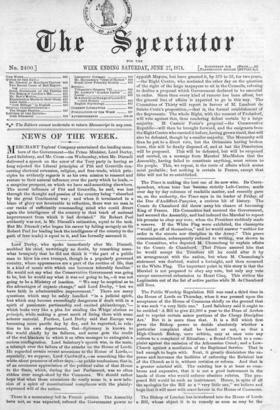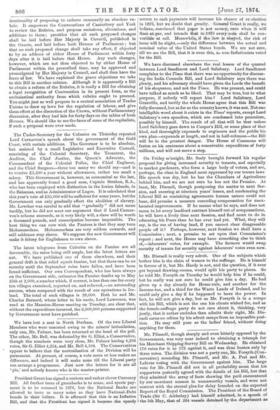The Bishop of London has introduced into the House of
Lords a Bill, whose object it is to remedy as soon as may be the
irrationality of proposing to enforce summarily an obsolete ru- bric. It empowers the Convocations of Canterbury and York to review the Rubrics, and propose omissions, alterations, and additions to them ; provides that all such proposed changes shall be laid before Her Majesty in Council, published in the Gazelle, and laid before both Houses of Parliament ; but that no such proposed change shall take any effect, if objected to by an address of either House of Parliament within forty days after it is laid before that House. Any such changes, however, which are not thus objected to by either House of Parliament within the prescribed time, may be approved and promulgated by Her Majesty in Council, and shall then have the force of law. We have explained the grave objections we take to this Bill in another column. Although it is apparently a Bill to obtain a reform of the Rubrics, it is really a Bill for obtaining a legal recognition of Convocation in its present form, as the ecclesiastical authority from which rubrics ought to proceed. You might just as well propose to a central association of Trades Unions to draw up laws for the regulation of labour, and give them effect at the discretion of the Crown, without Parliamentary discussion, after they had lain for forty days on the tables of both Houses. We should like to see the faces of some of the capitalists, if such a proposal were ever made.



































 Previous page
Previous page